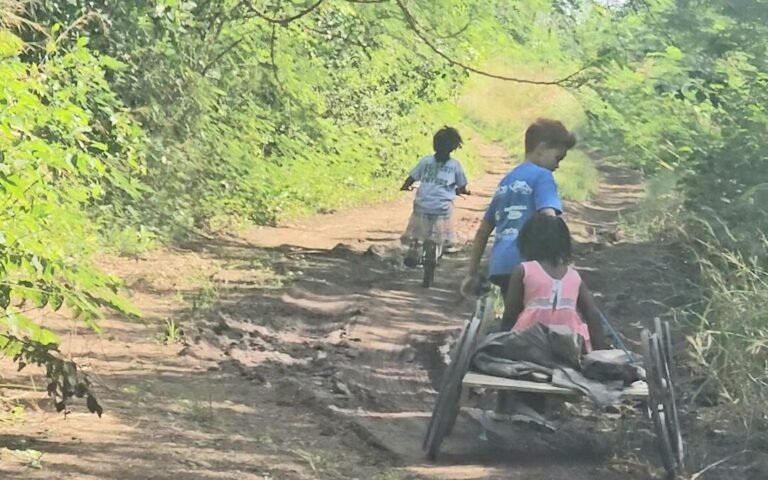Tips For Finding Accommodation Abroad
If you’re going to move abroad then learning how find accommodation abroad is a necessary but often confusing task. Those dreams of that idyllic beachfront space can quickly turn stressful if you struggle to find a suitable place to rest and call home.
Let’s face it though, finding the right accommodation isn’t just about a roof over your head. It’s about setting the stage for your entire adventure abroad. It’s the difference between feeling like a tourist and feeling like a resident. It’s the launchpad from which you’ll explore vibrant streets, make local connections, and ultimately, create the life you’ve dreamed of. Your home should be a haven for you so let’s delve into the tips we’ve often used to help us find our temporary and long-term stays.
Here are some essential things to look out for when securing long-term rentals abroad:
Before You Start
- Budget: Determine your overall budget, including rent, utilities, and potential furnishings.
- Location: Decide on the ideal neighborhood or area based on your needs (e.g., proximity to work, schools, amenities).
- Duration: How long do you plan to stay? This will influence your rental options as some landlords offer significant discounts based on longer durations.
When Searching for Rentals
- Legality: Ensure the landlord or agency is licensed and authorised to rent properties if there is an official register that you can check their details against.
- Contract Terms: Carefully review the lease agreement, paying attention to rental duration, rent increases, security depositspayment methods, and termination clauses.
- Utilities: Understand which utilities are included in the rent and what additional costs you’ll incur.
- Furnishing: Determine if the property is furnished or unfurnished. If unfurnished, assess the cost and availability of furniture.
- Internet and Amenities: Check if internet is included or available for an additional fee. Inquire about other amenities like laundry facilities, parking, and shared spaces.
- Safety: Research the safety of the neighborhood. Look for information on crime rates and local security measures.
- Repairs: Clarify who will be responsible for repairs. Generally the landlord should be responsible for structural repairs and you may required to handle minor maintenance tasks like changing light bulbs and replacing smoke detector batteries but consult the lease for clarification.
- Noise Levels: If you’re sensitive to noise, consider factors like traffic, nearby construction, or proximity to nightlife areas.
- Local Laws: Familiarise yourself with local tenancy laws and regulations to protect your rights as a tenant.
During Viewings
- Property Condition: Inspect the property thoroughly for any damage, wear and tear, or maintenance issues. Open cupboards, confirm the appliances work, lift the bed sheets and check the mattresses.
- Neighbourhood: Take a walk around the neighbourhood to assess its cleanliness, amenities, and overall atmosphere.
- Ask Questions: Don’t hesitate to ask the landlord or agent any questions you have about the property or the rental process.
Additional Tips
- Online Platforms: Utilise online platforms like Airbnb, Craigslist, and local real estate websites to find rental listings.
- Local Agents: Consider working with a local real estate agent who specialises in rentals to assist you in the search process.
- References: Ask for references from previous tenants to get insights into the landlord’s reliability and responsiveness.
- Negotiation: Be prepared to negotiate the rent or other terms, especially if you’re renting for a longer period.
- Cultural Differences: Be aware of cultural differences in rental practices and customs.
By following these guidelines and asking the right questions, you can increase your chances of finding a suitable and comfortable long-term rental abroad.
Where can I find accommodation abroad?
Here are some of the most common ways to find a place to stay:
- Airbnb: The undisputed king of short-term rentals, Airbnb offers a diverse range of apartments, houses, and even unique spaces like boats and treehouses. While not always the cheapest option, it allows for flexibility and can offer a more authentic local experience than traditional hotels.
- Booking.com: Another popular platform, Booking.com boasts a wide range of hotels, apartments, and hostels across the globe. It’s particularly useful for short-term stays and often offers last-minute deals.
- Facebook Groups: Many cities have expat and local housing groups on Facebook. These can be goldmines for finding affordable rentals, apartments, and even rooms in shared flats. Be wary of scams, though, and always verify information before committing. Try searching “rentals in *insert city/country*”. You can also use facebook marketplace to look for potential rentals. Facebook marketplace is actually how we found our last 2 rentals in Mexico.
- Realtors: For long-term rentals or more high-end properties, consider enlisting the help of a local realtor. They have extensive knowledge of the market and can help you navigate legalities like leases and deposits. However, be prepared for realtor fees which can add to the overall cost.
- Pounding the Streets: The old-fashioned way! In some countries, especially smaller towns and villages, finding accommodation can be done by simply walking around and looking for “For Rent” signs. This method puts you directly in touch with landlords and could lead to hidden gems not advertised online.
Free Stays for a tight budget
Living abroad doesn’t have to break the bank, especially when it comes to accommodation. Here are some brilliant free (or nearly free) options to consider:
- HouseSitting: Fancy yourself a pet caretaker with an exotic twist? House sitting allows you to live rent-free in someone’s home while they’re away, usually in exchange for looking after their furry (or feathery) companions. TrustedHousesitters and Nomador are great platforms to find these opportunities. Remember, responsible pet care is key, so ensure you have experience and a genuine love for animals before signing up.
- Workaway: This platform connects travellers with hosts who offer accommodation and meals in exchange for a few hours of help a day. Whether you’re assisting with farm chores, language exchange opportunities, or light housekeeping, Workaway is a fantastic way to immerse yourself in local life while learning new skills.
- Noad Exchange: This online community facilitates home exchanges with other travellers. You get to live in someone else’s home while they stay in yours, offering a unique, rent-free way to experience a new place. However, this method usually suits longer stays as it requires a reciprocal exchange.
- House Swapping: Similar to Nomad Exchange, house swapping platforms like HomeExchange or GuesttoGuest allow you to swap homes with fellow adventurers for a set period. This is another fantastic option for longer stays and provides a chance to experience local living deeply.
Finding your ideal accommodation abroad is a journey in itself. It’s a chance to discover new neighbourhoods, meet interesting people, and create lasting memories. Whether you’re seeking a budget-friendly option or a luxurious retreat, remember that your accommodation is more than just a place to sleep. It’s a foundation for the adventures and experiences that await you. So, pack your bags, embrace the unknown, and embark on your journey to find your perfect foreign foothold!
FAQs About Finding Accomodation Abroad
Should I book accommodation before I arrive, or wait until I’m there?
This depends. If you’re arriving in peak season or a popular city, booking beforehand is wise. However, if you have flexibility and a lower budget, waiting allows you to explore neighbourhoods and find something more fitting. Long-term accommodation generally shouldn’t be booked without a viewing first.
How do I avoid scams when looking for accommodation online?
Never send money upfront without a signed contract. Use reputable platforms with secure payment systems. If something seems too good to be true, it probably is! Trust your gut and do your research on the property and landlord.
How can I find a safe and affordable neighbourhood?
Do your research online and consult with locals or expats. Look for areas with good transportation, amenities, and a sense of community. Consider your lifestyle and priorities when choosing a neighbourhood.
What should I consider when signing a lease?
Read the lease carefully, understanding all terms and conditions. Clarify any doubts with the landlord. Be aware of your rights as a tenant and ensure the lease is fair and reasonable.
How can I make my accommodation feel more like home?
Add personal touches like photos, plants, and favourite items. Get to know your neighbours and participate in local activities. Make your space a reflection of your personality and create a sense of belonging.








